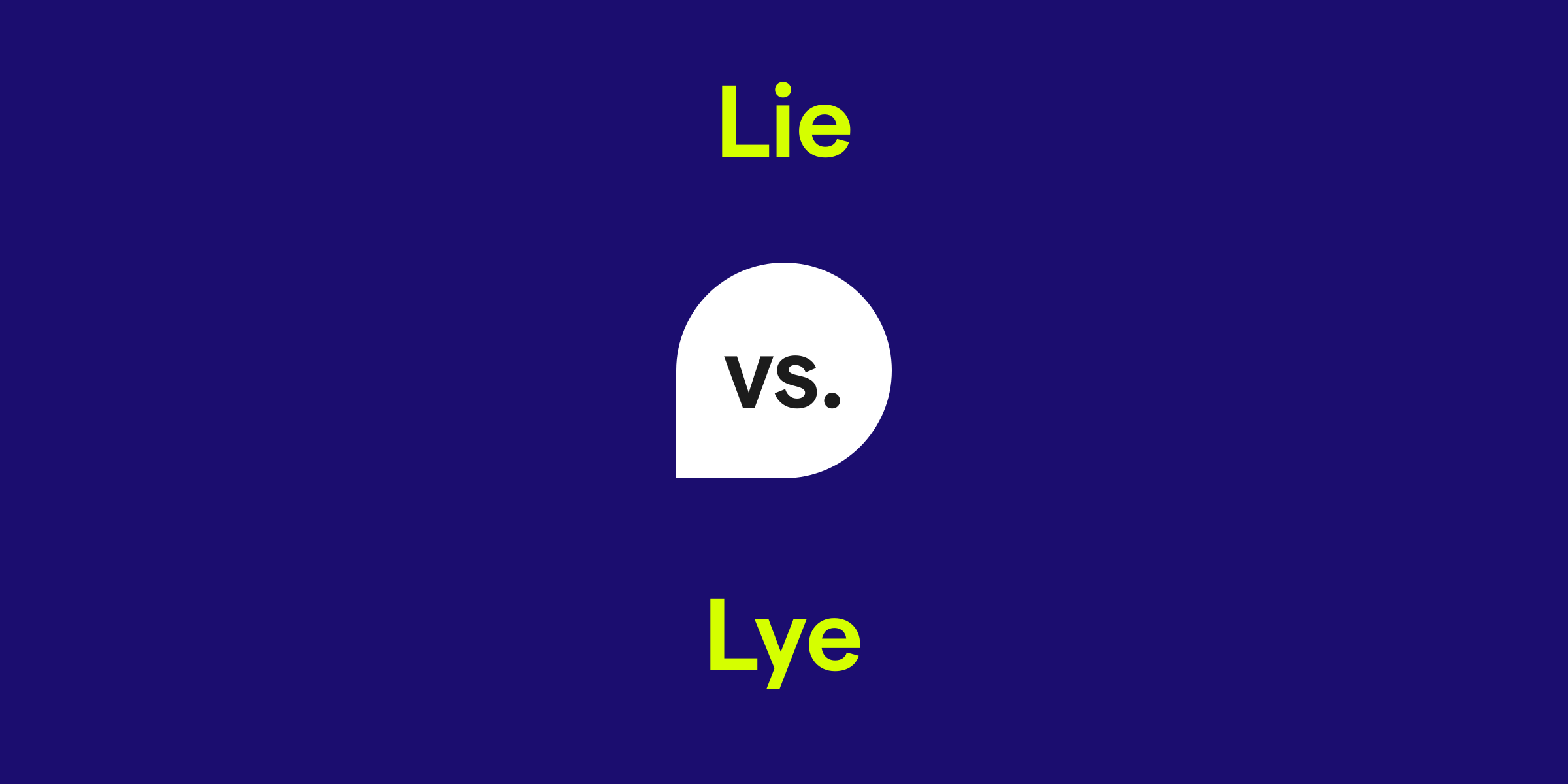Lie vs. Lye: What's the Difference?
Despite their similar spelling, lie and lye refer to entirely different concepts. Lie is commonly used as a verb meaning to recline or rest in a flat position or to present false information as truth. On the other hand, lye is a noun that refers to a strong alkaline solution, often used in cleaning products and in the process of making soap.

How do you use the word lie in a sentence?
The word lie is used to indicate being in a horizontal position or as a falsehood. When referring to a reclining position, it usually does not require a direct object, and in the context of falsehood, it implies an intentional act of deception. It is important to use lie correctly to convey clear meaning in your communications.
Examples of lie in a sentence
- After a long day at work, she could not wait to lie down on her comfortable bed.
- It's not wise to lie about your qualifications during a job interview.
- The cat likes to lie in the sunniest spot of the living room.
How do you use the word lye in a sentence?
Lye, a powerful chemical compound, must be handled with care due to its caustic properties. It is utilized in the production of various cleaning agents and traditionally for making soaps through the saponification of fats and oils. Its potency and nature dictate the need for safety precautions when using it in any form.
Examples of lye in a sentence
- She wore gloves and goggles to protect herself from the lye while making homemade soap.
- A drain cleaner that contains lye can effectively unclog pipes.
- During the workshop, we learned that lye reacts with oil to produce soap.
Lie and lye definition, parts of speech, and pronunciation
Lie definition:
Verb (intransitive): To be in or assume a horizontal or resting position on a surface or Verb: To make an untrue statement with intent to deceive.
Lie parts of speech:
Lie pronunciation:
/laɪ/
Lye definition:
Noun: A strongly alkaline solution, especially of potassium hydroxide or sodium hydroxide, used in washing and cleaning products, and in the manufacture of soaps.
Lye parts of speech:
Lye pronunciation:
/laɪ/
Verb (intransitive): To be in or assume a horizontal or resting position on a surface or Verb: To make an untrue statement with intent to deceive.
Lie parts of speech:
- Intransitive verb: The children lie on the floor when they play with their toys.
- Transitive verb: Politicians who lie to the public often face severe backlash.
Lie pronunciation:
/laɪ/
Lye definition:
Noun: A strongly alkaline solution, especially of potassium hydroxide or sodium hydroxide, used in washing and cleaning products, and in the manufacture of soaps.
Lye parts of speech:
- Noun: Always store the lye in a cool, dry place away from children.
- Adjective (in compound): The lye-based cleaner should be used with caution due to its corrosive nature.
Lye pronunciation:
/laɪ/
Lie vs. lye in a nutshell
Lie and lye are homophones with distinct meanings and uses. Lie, as a verb, can either indicate a physical position that is horizontal or an act of deception. Meanwhile, lye is a noun that denotes a caustic solution invaluable in soap making and cleaning. Correctly differentiating and utilizing these terms is essential for clear and effective communication.
Get AI Writing Assistance Wherever You Type
Make sure your vocabulary is on point and every punctuation mark is in the right place, no matter where you’re working. Grammarly works across more than 500,000 websites and apps so you can improve your writing without copying, pasting, or breaking focused.

More Commonly Confused Words
Interest piqued? Pore (not pour) over other commonly confused words to help your writing reach peak (not peek) performance.